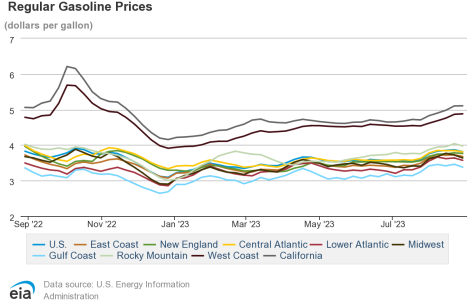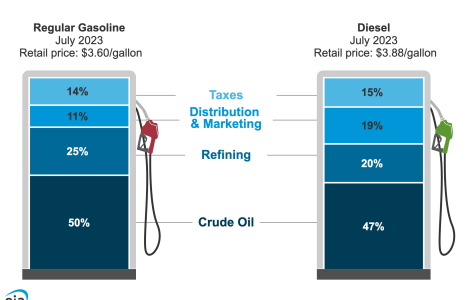Gas Price FAQ
As a regular commuter across Michigan, I share your frustration about the cost of gas and understand the uncertainty surrounding gas prices makes it hard for families to plan for the year and live within their budget.
As you know, gas prices have increased dramatically, causing frustration and questions surrounding the cause of the spike. Many factors play a role in higher prices at the pump, including extreme weather events, strength of the economy and energy policy decisions. However, the new Administration’s hostile actions towards fossil fuels, such as canceling the Keystone XL pipeline permit and halting new oil and gas leasing on public land, has certainly contributed to the increase in gas prices.
As a member of the Energy and Commerce Committee, I am committed to advancing policies that promote affordable and reliable energy for Michigan families.
Below is some helpful information and resources on this topic.

There are a variety of factors that help determine the general upward trend in gasoline prices and the daily fluctuations in the cost of a gallon of gasoline, including: transportation, distribution, cost of crude oil, refinery processing, marketing, operating expenses, retail station operations, taxes and global demand, the value of the U.S. dollar, and civil unrest in oil producing nations. The prices paid at the pump reflect these costs and factors, in addition to the costs associated with refiners, marketers, distributors, and retail station owners.
What do we pay for in a gallon of gasoline?

Refining: Crude oil is purchased as a raw material by refiners who then manufacture into gasoline.
Taxes: Consumers pay both state and federal taxes on gasoline. Total gas taxes per gallon vary greatly from state to state from lows of 30 cents per gallon to highs of more than 60 cents. In Michigan, drivers are charged approximately 59 cents per gallon in taxes.
Distribution & Marketing: Once gasoline is manufactured and leaves the refinery, it is sent to terminals for distribution to service stations. Retailers then set the price at the pump based a variety of factors, including recovering the cost of production and distribution costs, taxes, and the costs of marketing fuel to consumers.
What is gas price gouging?
Though there is no universal definition of what constitutes gas price gouging, it is generally agreed that price gouging occurs when a seller prices gasoline at a much higher rate than is considered fair or reasonable.
What should I do if I believe I have been a victim of price fixing or gas gouging?
In Michigan, the Attorney General's Office monitors statewide gas prices to prevent price gouging.
If you believe you have been a victim, please contact the Michigan Attorney General’s Consumer Protection Division to learn more about your rights:
Consumer Protection Division
P.O. Box 30213
Lansing, MI 48909
1-877-765-8388
(online complaint form)
Fuel-Saving Tips
Follow these tips and guidelines to make sure your vehicle is getting the best gas mileage possible.
• Fuel-saving driving tips from the Federal Trade Commission (FTC)
• Gas Mileage Tips from fueleconomy.gov
Other helpful resources on gas prices:
• U.S. Department of Energy Gas Price Data
• U.S. Energy Information Administration - Gasoline and Diesel Fuel Update
• Find the lowest gas prices in your area